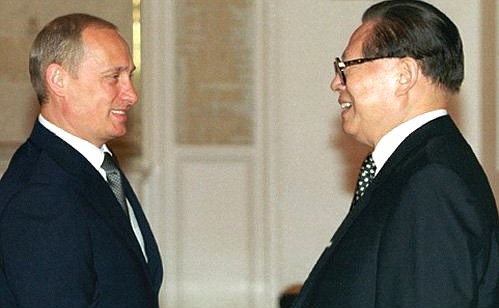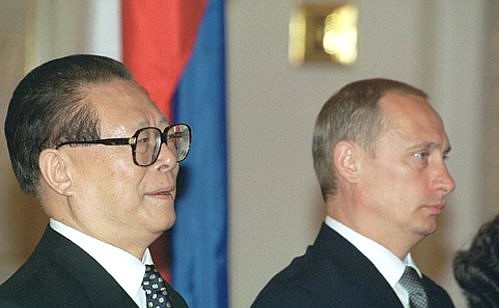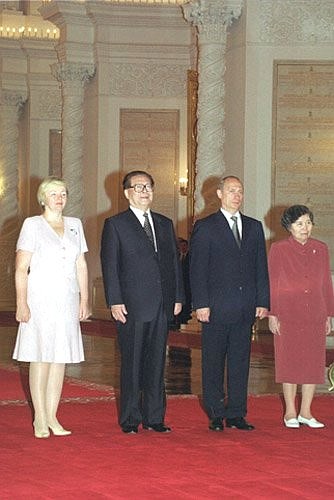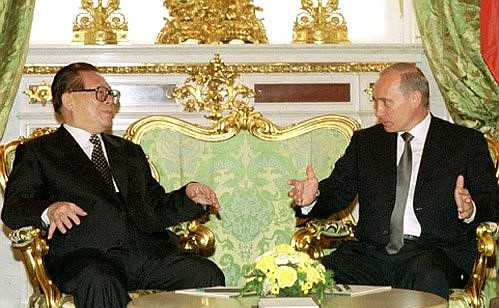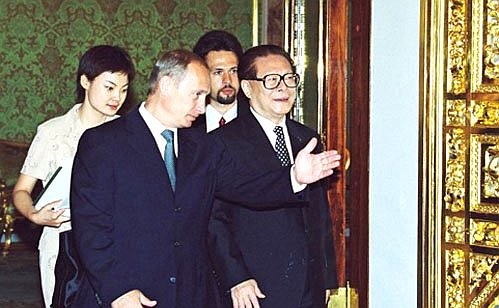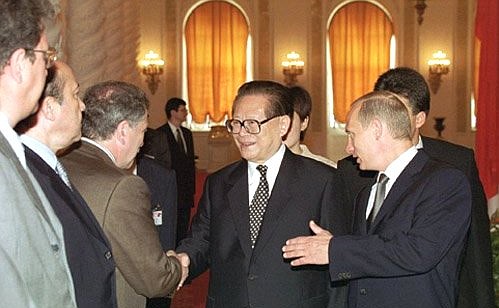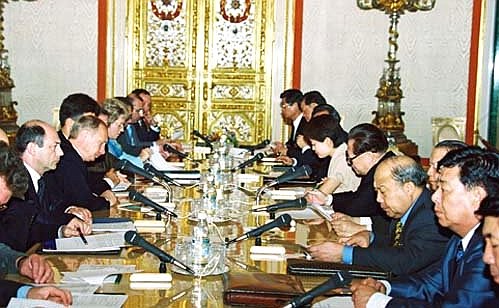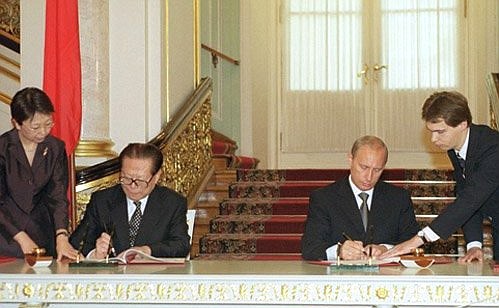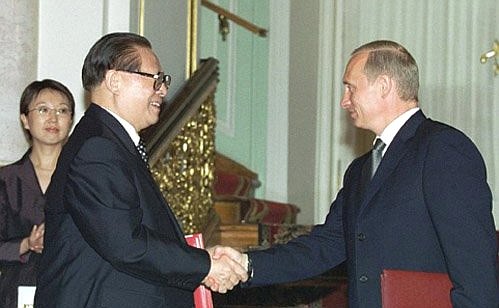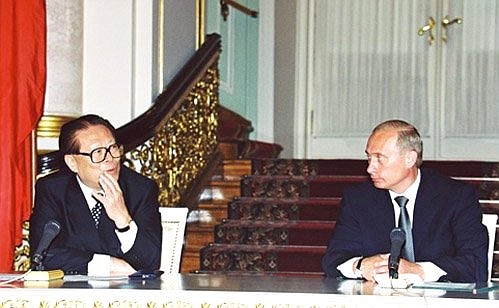Mr Putin and Mr Jiang first held a one to one meeting, with the negotiations later continuing in an expanded format attended by delegations of the two countries.
The heads of state discussed a wide range of Russian-Chinese issues, as well as international current affairs, including the issue of missile defence, prospects for the world’s strategic stability, and the situation in the Balkans and the Middle East.
The Russian President congratulated Mr Jiang on Beijing’s selection as host of the 2008 Olympic Games.
At the end of the negotiations, the Russian and Chinese leaders signed a Treaty of Good-Neighbourliness, Friendship and Cooperation. In the document the sides declared their intention to build their relations on the basis of an equal strategic partnership in keeping with the universally recognised principles of international law: mutual respect for sovereignty and territorial integrity, non-aggression, non-interference in each other’s internal affairs, equality, mutual benefit, and peaceful coexistence.
Russia and China reaffirmed their obligations not to be the first to use nuclear weapons against each other nor to mutually target strategic nuclear missiles at each other. In the event of a threat against either one of them, the sides will immediately make contact for consultation.
The signatories to the Treaty expressed themselves in favour of further political, trade, economic, military-technical and human cooperation and coordination of efforts on the issues of security and the fight against terrorism, separatism, extremism and organised crime.
The two leaders also adopted a Moscow Joint Statement. In the document, the sides expressed their support for the world’s strategic stability and announced an initiative to set up a special committee to prevent an arms race in space. Russia and China confirmed their common position on the need to preserve the 1972 ABM Treaty in its present form and step up the disarmament process.
The heads of state underscored the importance of a just, democratic and non-confrontational international order. At the same time they pointed to the need to strengthen the United Nations’ leading role in world affairs and the inadmissibility of the fundamental norms of international law being undermined by such concepts as “humanitarian intervention” or “limited sovereignty”, the statement said.
The sides also expressed their intention to contribute on a bilateral and a multilateral basis to stability, security and confidence building cooperation in the Asia-Pacific region.
Russia and China agreed to speed-up the search for and development of mutually acceptable solutions on disputed sections of the border between the two states, reads the text of the joint statement. The existing status quo will prevail until all issues of controversial sections are settled.
At the conclusion of the Russian-Chinese negotiations, Mr Putin and Mr Jiang gave a joint news conference.
